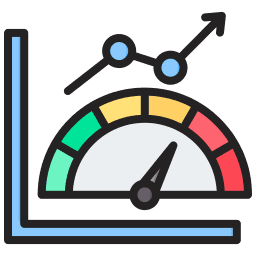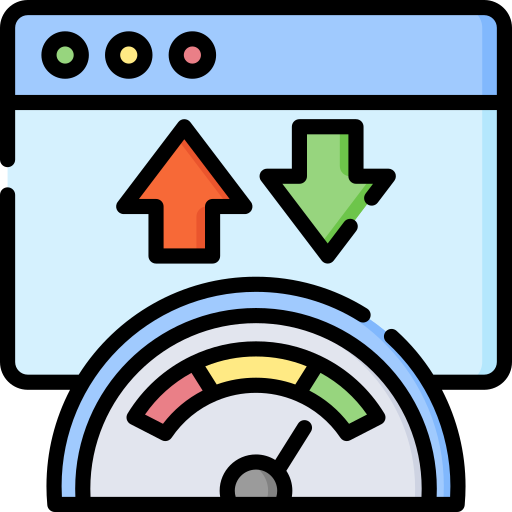Why Is My Browser So Slow?
The good news is that most browser performance issues are easily fixable with the right knowledge, proper maintenance habits, and proven optimization techniques. You don't need to be a tech expert, buy a new computer, or switch browsers permanently. This comprehensive guide presents 15 proven methods to speed up your browser, ranging from quick 30-second fixes to more thorough optimizations. Most users see dramatic performance improvements after implementing just 3-5 of these methods—your browser can feel brand new again without spending a penny.
Common Causes of Slow Browser Performance
Understanding these common culprits helps you identify the right solution. Most browser slowdowns fall into these categories:
Accumulated Cache and Cookies
The #1 most common cause of browser slowness. Over months of browsing, your browser accumulates gigabytes of cached images, temporary files, and cookies that must be searched every time you visit a site. After 6-12 months without clearing, this data significantly slows page loading and makes the browser feel sluggish overall.
Too Many Browser Extensions
Each extension consumes memory and CPU power continuously, even when you're not actively using them. Extensions run in the background, monitor page loads, inject code, and compete for resources. Having 15+ extensions can cut browser speed in half compared to a clean installation.
Outdated Browser Version
Older browser versions lack critical performance optimizations, security patches, and modern web standards support. Each browser update includes speed improvements—running a version from 6 months ago means missing dozens of cumulative performance enhancements that make modern browsers significantly faster.
Insufficient System RAM
Modern browsers need substantial memory—Chrome alone can easily use 2-4GB with multiple tabs open. Systems with less than 8GB total RAM struggle to keep browsers responsive, especially when multiple applications run simultaneously. Insufficient RAM forces constant disk swapping that devastates performance.
Background Processes Competing for Resources
Other applications running simultaneously consume CPU and RAM that your browser needs for optimal performance. Video editing software, games, multiple browsers open at once, or dozens of background applications create resource conflicts that slow everything down, including your browser.
Malware, Adware, and Browser Hijackers
Malicious software severely impacts browser performance through cryptocurrency mining, ad injection, search redirection, and data exfiltration running constantly in the background. Malware often disguises itself as legitimate browser extensions or toolbars, consuming massive resources while providing no benefit.

The Real Cost of a Slow Browser
Beyond lost time, slow browsers cause psychological stress—the constant friction of waiting for simple actions creates low-level anxiety and reduces focus on actual tasks. Poor browser performance can even affect career outcomes: remote workers appearing 'unprepared' in video meetings due to laggy browsers, researchers missing deadlines because slow browsers hindered information gathering, or freelancers losing clients frustrated by delayed communication. Investing 30 minutes to optimize your browser saves hundreds of hours annually and eliminates daily frustration that impacts your quality of life.
Method 1: Clear Browser Cache and Cookies
This is often the quickest fix for slow browsers:
- 1Chrome: Press Ctrl+Shift+Delete, select 'All time', check 'Cached images and files' and 'Cookies', then click 'Clear data'
- 2Firefox: Press Ctrl+Shift+Delete, select 'Everything', check 'Cache' and 'Cookies', then click 'Clear Now'
- 3Safari: Go to Safari > Clear History, select 'All History', then click 'Clear History'
- 4Edge: Press Ctrl+Shift+Delete, select 'All time', check 'Cached images and files' and 'Cookies', then click 'Clear'
Method 2: Disable Unnecessary Extensions
Disable extensions you don't use daily and completely remove ones you no longer need—disabled extensions still occupy some resources. Keep only 5-7 truly essential extensions enabled. After removing extensions, restart your browser completely to free the memory they were occupying. Many users are shocked by the speed improvement after trimming from 20 extensions down to 5 essential ones—pages load faster, tabs switch instantly, and the browser feels responsive again.
Method 3: Update Your Browser
Check for updates manually monthly to ensure they've installed properly—browsers sometimes delay updates if they're running continuously. Update your operating system regularly as well, since browsers depend on OS-level components for optimal performance. After updates install, completely restart your browser (not just close the window, but quit the application) to ensure new optimizations activate. Users running browser versions from 6 months ago miss dozens of cumulative speed improvements—the performance difference between current and year-old versions can be 20-40% slower.
How Browser Updates Dramatically Improve Performance
Modern browsers compete intensely on performance benchmarks, driving continuous optimization. Recent updates have introduced features like tab sleeping (suspending inactive tabs to save memory), improved cache management, lazy loading for images, faster JavaScript execution, and better multi-core CPU utilization. Users who enable automatic updates and restart browsers weekly to apply patches consistently report noticeably faster browsing compared to those running outdated versions. The performance gap between current and year-old browser versions is dramatic—updating is one of the easiest and most effective optimization methods available.
Method 4: Optimize Browser Settings
Fine-tune your browser settings for maximum performance. These adjustments can make a noticeable difference in speed and responsiveness.

Method 5: Manage Your Tabs
Set yourself a personal limit of 10-15 active tabs maximum—beyond this threshold, performance typically degrades noticeably on most systems. Use browser sessions or bookmark folders to save tab groups for different projects, allowing you to close entire groups when switching contexts. Consider organizing different activities into separate browser windows (work in one window, research in another, personal in a third) so you can close entire contexts at once. Many users report their browser feels dramatically faster after closing 15-20 forgotten background tabs they opened days ago and never revisited.
Method 6: Check for Malware
Use browser-specific malware removal tools: Chrome has a built-in Cleanup Tool (Settings > Reset and clean up), and dedicated tools like AdwCleaner specifically target browser malware. Carefully check your browser's installed extensions for suspicious entries you don't remember installing—malware often disguises itself as legitimate extensions with generic names like 'Helper' or 'Tool'. If malware is detected and removed, reset your browser settings to their defaults (Settings > Reset settings) to undo configuration changes the malware made. Signs of malware infection include unexpected pop-up ads on reputable websites, suddenly changed homepage or default search engine, and mysterious high CPU usage when the browser appears idle.
Method 7: Optimize Your Computer
Your computer's overall performance affects browser speed:
- 1Close unnecessary background applications
- 2Free up disk space (aim for at least 15% free)
- 3Increase virtual memory if possible
- 4Defragment your hard drive (if using HDD)
- 5Consider upgrading RAM if you have less than 8GB
Understanding the Browser-Hardware Performance Relationship
The single most impactful hardware upgrade for browser performance is replacing a traditional hard drive (HDD) with a solid-state drive (SSD)—this provides 5-10x faster cache access and dramatically reduces browser startup time and page loading. The second most important upgrade is increasing RAM to at least 16GB, allowing comfortable multi-tab browsing without constant memory swapping. While software optimization methods in this guide provide substantial improvements, they work within your hardware's limits. Users with 5+ year old computers or budget laptops may eventually need hardware upgrades for truly smooth browsing with modern feature-rich websites.
Method 8: Use Automated Browser Cleanup Tools
Manual browser maintenance is tedious and easy to forget—automated cleanup tools save time and ensure thorough, consistent cleaning without relying on your memory. Our Broom Cookie Cleaner extension provides comprehensive automated maintenance that keeps your browser running at peak performance.

Browser-Specific Performance Optimization Strategies
Each major browser has unique performance characteristics and optimization opportunities. Apply these browser-specific tips for maximum speed:
Google Chrome Speed Optimization
Chrome is notorious for heavy memory consumption but offers excellent performance when properly configured. Enable Memory Saver mode (Settings > Performance) to automatically hibernate inactive tabs and free RAM. Use Chrome's built-in Task Manager (Shift+Esc) to identify memory-hogging tabs and extensions. Disable 'Continue running background apps when Chrome is closed' in Settings to prevent resource drain when the browser is closed. Chrome benefits most from aggressive extension management—remove all non-essential extensions.
Firefox Performance Tuning
Firefox offers excellent privacy and performance when optimized. Enable Enhanced Tracking Protection (Strict mode) to block resource-hungry trackers and ads automatically. Type about:config and set browser.cache.memory.capacity to -1 for optimal automatic cache management. Disable Pocket integration and other unused features in Settings. Firefox's container tabs isolate different activities, preventing one heavy site from slowing others. Firefox generally uses 20-30% less RAM than Chrome for the same workload.
Safari Optimization (Mac Only)
Safari is heavily optimized for Apple hardware and offers excellent performance on Mac. Enable 'Develop' menu (Preferences > Advanced > Show Develop menu) and use 'Empty Caches' regularly for thorough cleanup. Disable unused Safari extensions in Preferences > Extensions. Safari's Intelligent Tracking Prevention automatically reduces tracking cookie accumulation. Safari excels at battery efficiency—it uses significantly less power than Chrome on MacBooks, extending battery life while maintaining speed.
Microsoft Edge Performance
Edge (Chromium-based) combines Chrome's engine with Microsoft optimizations. Enable 'Sleeping Tabs' (Settings > System) to automatically suspend inactive tabs after 2 hours, freeing substantial memory. Use Efficiency mode when on battery power for extended laptop runtime. Enable vertical tabs (Settings > Appearance) for better tab management with many open pages. Edge typically uses 10-20% less RAM than Chrome while maintaining similar speed, making it excellent for systems with limited memory.
Method 9: Disable Unnecessary Features
Disable location services if you don't use map websites or location-based services (Settings > Privacy and security > Location)—sharing location requires background polling that drains resources. Turn off password saving for non-essential sites to reduce the browser's memory footprint from encrypted password storage. Disable sync if you don't use multiple devices (Settings > Sync)—syncing creates background network connections and processing overhead. Each disabled feature provides marginal improvement, but collectively disabling 5-10 unused features can provide noticeable performance gains, especially on systems with limited resources.
Method 10: Consider Switching to a More Efficient Browser
Try different browsers for a week each to find the fastest for your specific system and workflow—what works well on one computer may perform poorly on another depending on hardware, operating system, and installed software. Use browser-specific performance modes: Chrome and Edge offer Memory Saver, Firefox has Enhanced Tracking Protection, Safari has Reader mode for text-heavy sites. Test browser performance objectively using Speedometer or Basemark benchmarks to measure actual speed differences beyond subjective feel. The best browser is the one that balances speed, features, and privacy for your specific needs—don't be afraid to switch if your current browser consistently feels slow despite optimization efforts.
Method 11: Optimize Network Settings
Clear your DNS cache regularly (Windows: 'ipconfig /flushdns' in Command Prompt, Mac: 'sudo dscacheutil -flushcache' in Terminal) to remove corrupted or outdated entries that can cause delays when resolving website addresses. Consider switching to faster, more reliable DNS servers like Google's (8.8.8.8 and 8.8.4.4) or Cloudflare's (1.1.1.1 and 1.0.0.1) instead of your ISP's default DNS—this can reduce page load times by 50-200ms per site. Restart your router and modem if experiencing consistently slow speeds—power cycle them by unplugging for 30 seconds, which often resolves temporary issues and refreshes network configurations.
Browser Speed vs Internet Speed: Understanding the Difference
You can have blazing-fast gigabit internet but still experience a slow, sluggish browser if it's clogged with cache, running 20 extensions, and managing 50 open tabs. Conversely, a perfectly optimized browser still loads pages slowly on a poor internet connection. To diagnose which you're experiencing: test with speedtest.net (measures internet speed) and observe browser responsiveness when switching tabs or opening settings (measures browser performance). If speedtest shows good speeds but your browser feels sluggish, the issue is browser optimization—apply the methods in this guide. If speedtest shows poor speeds, contact your ISP or upgrade your internet plan.
Method 12: Selectively Disable JavaScript for Speed
Test whether disabling JavaScript improves your browsing experience—visit your most-used sites with JavaScript blocked and see if they still work adequately. Many content-heavy sites (news, blogs, Wikipedia) function perfectly without JavaScript and load dramatically faster. Re-enable JavaScript on a per-site basis for web apps, video streaming, online banking, and interactive sites where it's essential. This approach provides the perfect balance: blazing-fast performance on simple content sites while maintaining full functionality on web applications that need JavaScript. Users often find that 60-70% of their browsing (reading articles, checking information) works fine without JavaScript and feels dramatically faster.
Method 13: Use Ad Blockers for Faster Page Loading
Whitelist trusted websites you want to support financially through ad revenue—good ad blockers make this easy with per-site controls. Choose ad blockers specifically designed for performance—uBlock Origin is notably faster than many alternatives and uses less memory. Consider privacy-focused browsers with built-in ad blocking like Brave, which blocks ads and trackers by default without requiring extensions. Regularly update your ad blocker to ensure its filter lists include the latest ad networks and tracking domains. Users consistently report 30-50% faster page loads after installing ad blockers, with the most dramatic improvements on news and media sites that typically load 20+ ads per page.
Browser Speed Optimization Strategies for Different User Types
Not everyone has the same browser usage patterns or performance needs. Choose the optimization strategy matching your usage profile:
Casual Users (Email, Social Media, Shopping)
Light browsing demands minimal optimization—focus on quick wins with maximum convenience. Clear cache and cookies monthly, keep browser updated automatically, limit extensions to 5-7 essentials, close browser when finished to prevent resource accumulation. Casual users can tolerate 10-15 open tabs comfortably on modern systems. Monthly 5-minute maintenance (cache clearing + extension audit) prevents most slowdowns while maintaining convenience of saved logins and settings.
Professional Users (Remote Work, Research, Multitasking)
Heavy daily usage requires proactive maintenance for consistent productivity. Clear cache weekly, aggressively manage tabs (close when finished, use bookmarks extensively), limit extensions to 10 maximum and audit quarterly, use separate browser profiles for work and personal to prevent cross-contamination, restart browser daily to clear memory leaks. Consider 16GB+ RAM for comfortable multi-tab workflow. Professionals benefit most from automated cleanup tools that maintain performance without interrupting workflow.
Power Users (Developers, Gamers, Content Creators)
Extreme usage demands maximum optimization and powerful hardware. Clear cache daily or after intensive sessions, use multiple browsers for different purposes (Chrome for development, Firefox for testing, Safari for general use), close all unnecessary applications when running resource-intensive browser tasks, upgrade to 32GB+ RAM for comfortable operation with many tabs and applications, use SSD for browser cache and profile storage. Power users should manually optimize browser flags (about:config or chrome://flags) for maximum performance.
Users with Older/Budget Computers
Limited hardware requires aggressive optimization to maintain usability. Clear cache and cookies weekly minimum, ruthlessly limit extensions to 3-5 absolute essentials, keep maximum 5-8 tabs open simultaneously, close all background applications before browsing, use lightweight browser (Firefox over Chrome, or lightweight alternatives), disable hardware acceleration if causing issues, avoid resource-heavy sites when possible. Consider lightweight Linux distributions if Windows performance is poor. Older hardware benefits dramatically from disciplined tab and extension management.
Method 14: Clear Browser History and Downloads Regularly
Remove old downloads from your computer's download folder—while the download list doesn't significantly impact browser speed, the folder itself can contain gigabytes of forgotten files consuming disk space. Clear saved form data and passwords for sites you no longer use (Settings > Autofill) to reduce the browser's memory footprint and improve security. Delete old bookmarks you no longer need—maintaining a lean bookmark collection improves organization and slightly reduces browser startup time. Use comprehensive browser cleanup tools like Broom Cookie Cleaner for thorough, automated cleaning of history, cache, cookies, and temporary files on a schedule, preventing gradual performance degradation without requiring manual intervention.
Method 15: Restart Your Browser Daily
Restart your computer weekly to clear system-level caches, refresh network connections, apply pending OS updates, and eliminate background process conflicts that affect browser performance. Use your browser's built-in task manager (Chrome: Shift+Esc, Firefox: about:performance) to identify and close unresponsive tabs consuming excessive resources without restarting the entire browser. Clear browser cache before restarting for maximum benefit—this combination removes both data accumulation and process memory leaks simultaneously. Check for browser updates after restarting to ensure you're running the latest version with all performance improvements. Users who restart browsers daily consistently report better performance compared to those who keep browsers running continuously—it's the digital equivalent of a good night's sleep.
Creating a Sustainable Browser Maintenance Routine
Establish a simple weekly routine: clear cache and cookies (2 minutes), audit and remove unused extensions quarterly (5 minutes), restart your browser daily (30 seconds), and enable automatic updates (one-time 1 minute setup). These four habits prevent 90% of browser slowdowns and require less than 10 minutes monthly. For maximum convenience with zero manual effort, use automated browser cleanup tools that handle cache clearing, cookie management, and performance monitoring continuously in the background. Good browser hygiene becomes invisible—you simply enjoy consistently fast performance rather than cycling between optimized speed and frustrated slowness.
Frequently Asked Questions
Common questions about browser cookies answered
How often should I clear my browser cache?
For optimal performance, clear your browser cache every 1-2 weeks, or whenever you notice slow loading times. Our extension can automate this process for you.
Will clearing cookies log me out of websites?
Yes, clearing cookies will log you out of most websites. However, you can choose to keep login cookies while clearing other types of cookies.
How many browser extensions is too many?
Generally, 5-10 extensions is manageable. More than 15-20 extensions can significantly slow down your browser. Disable unused extensions to improve performance.
Should I use multiple browsers?
Using different browsers for different purposes can help distribute the load and improve overall performance. For example, use one for work and another for personal browsing.
Can a slow internet connection affect browser performance?
Yes, a slow internet connection will make web pages load slowly regardless of browser optimization. Consider upgrading your internet plan or using a wired connection.
How can I test if my browser is actually faster?
Use online browser speed tests, time how long it takes to load common websites, and monitor your browser's memory usage in the task manager.



